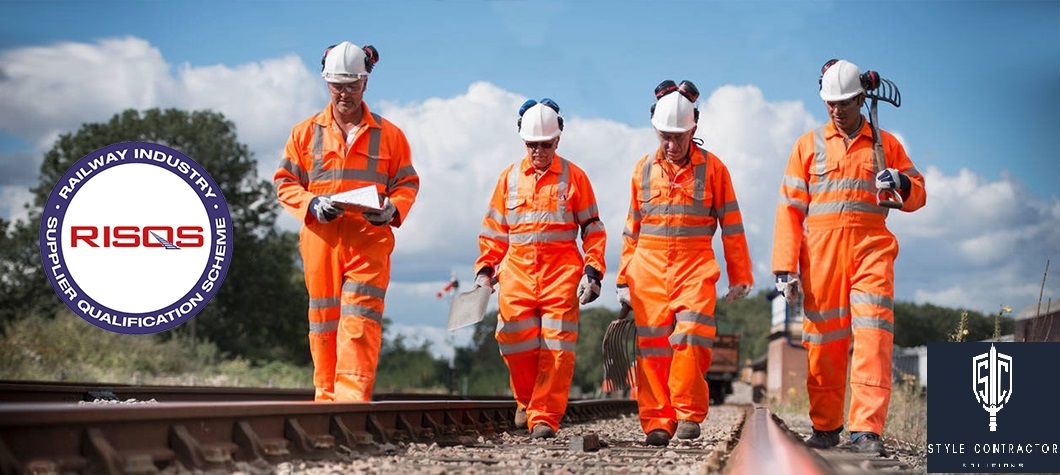In the ever-evolving landscape of the UK railway and construction industries, achieving accreditation is crucial for businesses aiming to stand out. Among various accreditation options, RISQS accreditation (Railway Industry Supplier Qualification Scheme) plays a vital role in ensuring that suppliers meet the necessary standards for safety and quality. In this article, we’ll explore the benefits of RISQS accreditation and how it compares to other certifications like CHAS (The Contractors Health and Safety Assessment Scheme) and SafeContractor.
What is RISQS Accreditation?
Before diving into its benefits, it’s essential to understand what RISQS is. RISQS accreditation is a supplier qualification scheme specifically designed for the railway industry in the UK. It evaluates suppliers on various criteria, including quality, safety, and compliance with industry standards. Achieving RISQS accreditation demonstrates a supplier’s commitment to maintaining high standards and continuous improvement.
1. Enhanced Credibility and Trust
One of the primary benefits of RISQS accreditation is the enhanced credibility it offers. In an industry where safety is paramount, being accredited provides reassurance to clients and partners that your business adheres to rigorous standards. This trust can significantly influence decision-making, often leading to more business opportunities.
2. Access to New Market Opportunities
Many railway organizations require suppliers to hold a RISQS accreditation before engaging in contracts. By becoming accredited, businesses can access tenders and projects they might not otherwise be eligible for. This opens doors to new opportunities within the railway sector, increasing your company's potential for growth.
3. Improved Quality and Safety Standards
The process of obtaining RISQS accreditation involves a thorough assessment of your processes and practices. This not only helps businesses identify areas for improvement but also instills a culture of safety and quality. The railway industry demands high reliability and safety standards, and RISQS accreditation ensures suppliers contribute positively to this environment.
4. Streamlined Compliance and Risk Management
Compliance with regulatory requirements is essential in the railway sector. RISQS accreditation simplifies this process by providing clear guidelines and standards that suppliers must meet. This helps businesses stay compliant with regulations, reducing the risk of penalties or legal issues. Compared to other certifications like CHAS and SafeContractor, RISQS is tailored specifically for the railway industry, making it a targeted choice for those operating in this sector.
5. Networking Opportunities
Achieving RISQS accreditation connects suppliers with a community of professionals in the railway industry. This networking opportunity is invaluable for sharing best practices, discussing industry trends, and fostering collaborations. Networking can lead to partnerships that enhance your business's capabilities and market reach.
6. Marketing Advantage
Having RISQS accreditation serves as a powerful marketing tool. It can differentiate your business from competitors, making it a selling point in proposals and marketing materials. Being able to showcase your accredited status can enhance your business’s attractiveness to potential clients.
Comparing RISQS with CHAS and SafeContractor
When discussing accreditation in the construction and railway sectors, it's essential to compare RISQS with other well-known certifications like CHAS and SafeContractor. Both CHAS and SafeContractor are widely recognized for assessing health and safety compliance, making them valuable for businesses in construction and related fields.
- CHAS focuses on health and safety management, helping businesses demonstrate compliance with legal and regulatory standards.
- SafeContractor, similarly, emphasizes health and safety, ensuring that contractors meet the necessary criteria before they can work on projects.
While both CHAS and SafeContractor are vital for businesses seeking to establish credibility in the construction sector, RISQS accreditation is specifically tailored for suppliers in the railway industry. This specialization makes RISQS an essential accreditation for those operating within this niche.
The Role of Construction Line Accreditation
Another relevant certification is Construction Line accreditation, which assesses suppliers for the construction sector. While useful, Construction Line focuses more on general construction practices rather than the specific needs of the railway industry. For businesses directly involved in railway projects, RISQS accreditation offers a more relevant and targeted evaluation.
Conclusion
In summary, RISQS accreditation provides numerous benefits that extend beyond certification. From enhanced credibility and access to new market opportunities to improved quality and compliance with industry standards, the advantages are compelling. While CHAS and SafeContractor are excellent options for businesses focused on health and safety, RISQS accreditation is crucial for those in the railway sector.
For companies looking to excel in the railway industry, pursuing RISQS accreditation is not just a strategic move; it's a necessary step toward long-term success and growth. By committing to high standards and demonstrating a dedication to quality, businesses can secure their place as trusted suppliers in this vital industry.
For more info:-
construction line accreditation





Comments